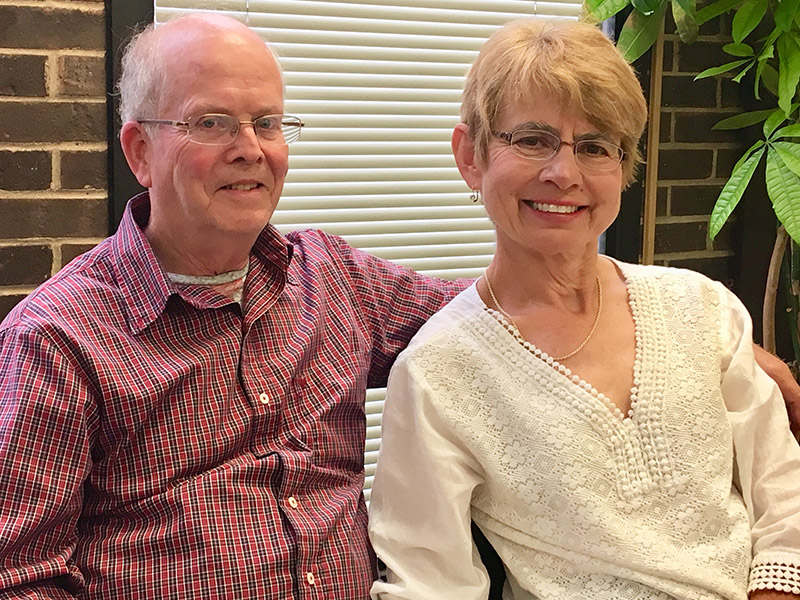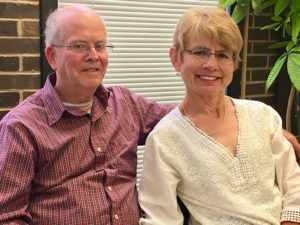



A friend in hospice care. Neighbors concerned about climate change. Participants in a theological discussion group. An occupational therapist.
Baha’is in far-flung Minnesota communities are engaging people they meet in meaningful conversations on spiritual topics — even while they continue to practice together, in person and online, how to carry out such conversations ever more effectively.
On one level they are learning how to participate in the discourses of society. David Keller of Stillwater, on the Wisconsin line east of Minneapolis-St. Paul, has been attending a theological discussion group to “offer Baha’i perspectives while learning from others and making friends.”
Keller says the latest session’s rich conversation delved into the concepts of justice and forgiveness, giving him “natural opportunities” to talk about the revelation of Baha’u’llah, prophet-founder of the Baha’i Faith, and about the upcoming 200th anniversary of the birth of the Bab, His herald.
They also are honing how to share the principles and aims of the Baha’i Faith with those who inquire. Denise Carlson of Little Marais, well to the northeast on the shores of Lake Superior, entered “Baha’i Faith” as her religion on many forms over her six months of hospitalization and outpatient treatment this past year.
At one point her occupational therapist asked about the Faith. “We talked for quite a while during one therapy session about the principles of the Faith,” recalls Carlson. “She said that she was looking for people to have meaningful conversations with.”
Just as important, these Baha’is are learning how to listen better. “What can we learn from each other?” wonders Stacy Keller, David’s wife, as she goes about “fostering unity, promoting understanding and achieving common goals.”
Oh, and they’re learning to exercise patience. Dave Carlson, Denise’s husband, provided daily weather observations from their home on the coast to national and state climatological agencies. This awareness of climate patterns has opened the door for related conversation with a wide range of people.
“Most often the practice of meaningful conversation requires patience,” he says, both with people who are skeptical about climate change and those “who are dealing with anxiety and fear” about the impact of global warming.
A focused learning discussion
Study of conversation techniques began in earnest last November when the Kellers and other Baha’is in the Stillwater area discussed their experiences in elevating conversations to a spiritual level, with a focus on how to share what they’re learning.
“We made a plan to meet every two weeks to learn about topics to discuss in conversations, increase our understanding and engage in conversations,” says David Keller.
They started by studying articles in The Baha’is magazine, a publication of the Baha’i International Community that “offers an accessible and comprehensive survey of the Faith’s history, conceptual framework, and community-building processes.”
“Our hope was to better engage in meaningful conversations with friends, family and co-workers,” says Stacy Keller. “This has proven to be a great source for exploring the history, beliefs, and practices of the Baha’i Faith that can be easily shared.”
Area Baha’is also have explored letters from the Universal House of Justice and National Spiritual Assembly, the international and U.S. governing councils of the Faith.


Then Baha’is from other parts of the state joined them in “Preparing for Interfaith Dialogue,” a course from the Wilmette Institute, an online Baha’i learning center. From there the circle widened, bringing in the Carlsons and others such as Shirene Gounili of St. Paul and Rita Erickson of Scandia.
“As a result of taking this course I gained so much confidence and comfort in my ability to engage in dialogue and to elevate conversations,” says Stacy Keller. “Finding common ground. Feeling more committed!”
Adds David Keller, “The course helped us overcome stereotypes, broaden our views, listen to and learn from others as we together make a better world.
“We gained confidence and entered into conversations whether at events in libraries, churches and other spaces where we can begin to develop relationships, or at informal encounters with relatives and friends.”
Likewise, the experience of recent months has brought the members of this informal study-and-practice group together.
Insights into working as a team
“We’ve had minimal experience working in teams or in collective efforts” in the rural and small-town area where the Kellers live, says David Keller.
“Our group, by meeting regularly …, engaging in conversations and accompanying each other, seems to be forming a nucleus. We are becoming close friends as we learn together.”
Which has been a particular blessing for the Carlsons, the only Baha’is in Lake County, Minnesota.
The devotional gathering they have hosted since 2004 has nine regular participants. “We choose topics a month ahead and keep travelers informed by email,” says Dave Carlson. In The Baha’is magazine he found quotations related to the latest topic, empathy.
One, from Shoghi Effendi, head of the Baha’i Faith from 1921 to 1957, reads, “We must be like the fountain or spring that is continually emptying itself of all that it has and is continually being refilled from an invisible source.”
Isn’t that what the Minnesota study group on meaningful conversations is all about?


![]()
![]()
Whether you are exploring the Bahá'í Faith or looking to become an active member, there are various ways you can connect with our community.
Please ensure that all the Required Fields* are completed before submitting.